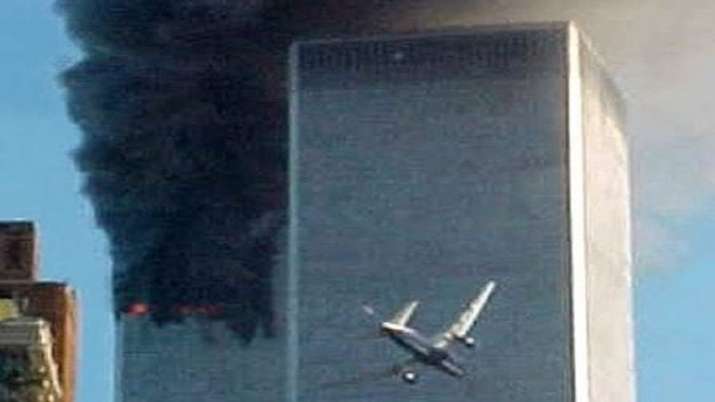
Striking an even sharper note, a textbook of Modern and Contemporary World History from China includes a photo of the twin towers in flames near a section on geopolitics. A Pakistani textbook describes the attack, which left almost 3,000 dead, as an “incident,” and dwells on the risks that come from American hegemony. South Korean and Indian students learn that the strikes on the World Trade Center in New York and on Washington were a consequence of globalization. Source: Biz Herman, University of California, Berkeleyīut some countries teach students that the events of that day offer a lesson, or perhaps a warning, for the world’s powers. Textbooks from (clockwise from top left) Germany, Russia, South Korea, the U.S., Sweden and South Africa.

Source: Biz Herman, University of California, Berkeley Textbooks from (clockwise from top left) Germany, Russia, South Africa, the U.S., Sweden and South Korea. 11 alongside terrorist attacks that struck their own citizens. Spanish, French and Russian textbooks discuss Sept. In England, descriptions of the attack appear in one popular textbook in a section titled “Terrorist Groups in Action,” which also explores how the British government handled the Irish Republican Army. Students have been asked by their teachers to explore the experiences of their own families.īut at a remove from the bloodshed, and with attitudes of varying warmth toward the U.S., other countries handle the subject with their own nationalistic tilt. 11 curriculum has been overtly personal and emotional. In New York and elsewhere in the United States, the Sept. Herman to examine many of the textbooks commonly used by middle and high school students and found that Iran, Venezuela, Egypt, Syria and Mozambique are a few of the countries that do not mention the attack. Schools around the world vary widely in their approach to teaching 9/11, if they teach it at all.īiz Herman, a doctoral candidate in political science at the University of California, Berkeley, has collected 850 textbooks from 90 countries. That’s when I started to have a lot deeper connection> That’s when I started to have a lot deeper connection Karen Zhang United States To interview a family member who was personally> to interview a family member who was personally Karen Zhang United StatesĪffected by 9/11.> affected by 9/11. In seventh grade, we were given a project> In seventh grade, we were given a project Karen Zhang United States occupying Iraq.> And that’s what resulted in the U.S. Mujtaba Ali al-Saadi IraqĪnd that’s what resulted in the U.S. He told me it happened to threaten the U.S.> he told me it happened to threaten the U.S. While talking to my history professor,> While talking to my history professor, Mujtaba Ali al-Saadi Iraq Of international conflict post-globalization.> of international conflict post-globalization. It was taught separately as an example> It was taught separately as an example Kim Donghyeon South Korea Showed that terrorism existed, and that it was> showed that terrorism existed, and that it was Noémi Grette FranceĪ threat to the whole world.> a threat to the whole world.


We talked about 9/11 being the first event that> We talked about 9/11 being the first event that Noémi Grette France In high school, but in the end they never played it.> in high school, but in the end they never played it. We were supposed to watch a documentary about 9/11> We were supposed to watch a documentary about 9/11 Ariadna Clareth Sánchez Rojas Venezuela The teacher had slides of the planes hitting the twin towers.> The teacher had slides of the planes hitting the twin towers. In my primary school, they briefly mentioned it.> In my primary school, they briefly mentioned it. These types of discussions don’t take place in our schools.> These types of discussions don’t take place in our schools.

I’m actually certain we’ve never studied it.> I’m actually certain we’ve never studied it. If there is a consensus, it can be found in what students told us their education has been missing: depth. 11 worldwide, but their impressions and experiences were striking.įrom Moscow to Manhattan, from Karachi to Caracas, from Berlin to Baghdad, students have come away with very different perspectives on terrorism, Islam, war and American power. Their voices offered only a hint of the diversity of instruction on Sept. But mostly we wanted to hear directly from young people, and so we interviewed students born after the attacks in 12 countries. We examined textbooks from all over and talked with educators. With the terrorist attack and the wars that followed having entered the realm of history, we sought to understand how these events are being taught. There is only education - formal, and informal. 11, 2001, there are no memories of that dark day to shape their views.


 0 kommentar(er)
0 kommentar(er)
